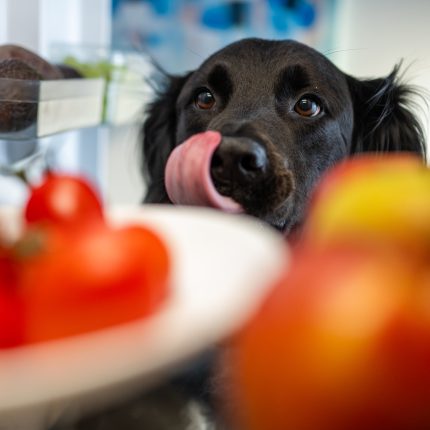Tips and tricks to safely handle raw pet food.

Tips and tricks to safely handle raw pet food.
A huge misconception when it comes to feeding our pets raw food is that it’s inherently unsafe for both us and them. This is not true! Handling raw food that is meant for your dog is no less safe than handling raw food that is meant for you – you just have to make sure you’re following food safety best practices. For those of us that eat meat, would you shy away from slicing up a raw chicken breast before throwing it into a pan to cook, or never shape ground beef for hamburger patties? Of course not! You’d just make sure that you are handling these foods appropriately and making sure to take the proper health and safety precautions. Best practices for handling raw dog food are essentially the same as those you would follow when handling raw food you’d be preparing for yourself. Read on to learn our favorite tips and tricks for safely handling raw pet food.
1. Always, always, always wash your hands!
You should never handle raw food – or food of any kind, for that matter – without washing your hands first, and you should never walk away from handling raw food without washing your hands afterwards. One of the biggest ways to prevent the spread of any bacteria or germs is by thoroughly washing your hands. If you want to be extra cautious or aren’t comfortable handling raw food with bare hands, you can always wear a pair of latex gloves while you prep your pet’s food. That said, we still recommend washing your hands both before and after, even if gloves are used.
2. Clean your prep surface.
All surfaces that you’ll be touching when handling raw food, especially raw meat, should be thoroughly cleaned before and after they come in contact with the food. Use warm soapy water to scrub your countertops, cutting boards, knives, and any other surfaces or items that you’ll be using when preparing raw meals to make sure that you have a clean workspace before you introduce the food, and after you’ve finished handling it.
3. Clean your pet’s food bowl.
Just like all surfaces that touch raw food during meal prep should be sanitized afterwards, so should the food bowl. Any bowls, plates, lick mats, etc. used to serve raw food should all be thoroughly cleaned after mealtime.
4. Keep separate storage containers.
Do not store raw pet food in containers that are also used to store food for human consumption. Raw food should always have its own storage containers.
5. Thaw raw food safely.
Raw pet food should be thawed using the same methods that are considered safe for thawing raw meat for human consumption. This can include thawing in the refrigerator or by placing in cold water for quicker thawing. When thawing in the refrigerator, it is recommended that food packages are placed in a bowl or Tupperware container to catch any potential leakage from the packaging. When you are ready to feed your defrosted food, make sure you feed within 2 days or up to 48 hours, or refreeze.
6. When in doubt, get in touch!
If you place an order with us and your food arrives slightly defrosted, that’s okay! As long as the food is still cold, it can be placed straight into the freezer and used at a later date. That said, if you’re ever unsure about your order, always feel free to reach out to our customer service team directly with an email to [email protected] so that we can provide guidance or rectify any issues.